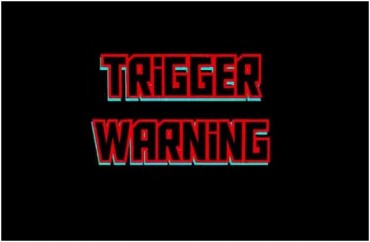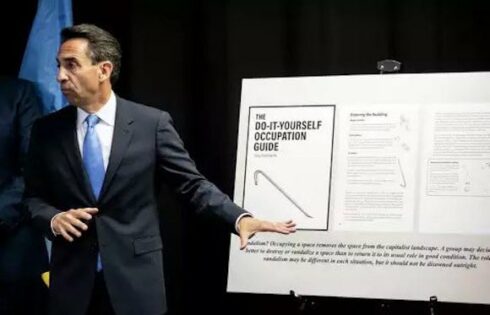
Students need to ‘confront’ stress, ‘process it’
Several professors are arguing for a compromise to the “trigger warning” debate on campus: Offer it to students once, when they first begin their college careers.
“Trigger warnings,” a contentious concept that has drawn scorn from commentators in recent years, are proposed notifications applied to course materials that students consider “triggering.” A trigger warning might, for instance, be affixed to a book that features depictions of American slavery, under the impression that a student reading such an account might be greatly upset or even traumatized by reading it.
At Inside Higher Ed, Professors Stephen Ceci, Scott Lilienfeld and Wendy Williams, instructors of psychology and human development, variously, argue that, rather than make trigger warnings a constant feature of college life, students should be given one “on their first day of college” and never again.
The professors argue that knowing when to issue a trigger warning is itself inherently difficult. “[A] history class that involves reading about the Dred Scott decision in which the word ‘property’ is used; a class on the Japanese invasion of China that includes information about the Rape of Nanking; a description of historical violence against innocents and animals in Steven Pinker’s Our Better Angels in a course on the role of central government; a reading about assisted suicide in a course on elder law; a course on rape law.”
“Warned or not, students must be expected to understand that material, notwithstanding — and in some cases because of — its potentially disturbing nature. Such examples complicate the task of instructors, who must forecast which events warrant warnings.”
From the article:
Are campuses moving toward a scheme in which administrators must keep a continually updated list of topics that might require warnings, and maintain a hearing board for professors who violate them? Will nonconforming faculty be required to enroll in formal sensitivity training or worse, risk administrative censure or even termination? And what about fairness to all positions: Will colleges and universities require sensitivity training for professors who exhibit insensitivity toward conservative or fundamentalist religious beliefs, for example?
Some in higher education argue that providing students with trigger warnings means taking students seriously. Others, however, contend that trigger warnings are a means of pandering to those harboring a broader agenda that encroaches on academic freedom and leads to administrative initiatives that add to the already burdensome academic bureaucracy. Students can use warnings not to prepare for a discussion of sensitive material but rather to pre-empt a reading or a presenter whom they argue is somehow trauma inducing.
The professors propose a “One-Time-Only Trigger Warning” that would be “given to students on their first day of college.” The proposed “warning” reads, in part: “[B]ear in mind that a liberal arts education is designed to confront you with things that challenge and at times even threaten your worldviews. So if you feel intellectually or emotionally disturbed by what you learn in class, don’t assume that you should be concerned.”
MORE: Harvard study: Trigger warnings actually harmful to students
Like The College Fix on Facebook / Follow us on Twitter





Please join the conversation about our stories on Facebook, Twitter, Instagram, Reddit, MeWe, Rumble, Gab, Minds and Gettr.